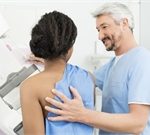There’s good news for women: Getting a mammogram regularly can cut their odds of advanced and sometimes fatal breast cancers, a new study says.
European researchers tracked data from nearly 550,000 women in Sweden who were eligible for mammography screening.
The team compared rates of advanced and breast cancers that were fatal within 10 years after diagnosis for women who got mammograms and those who didn’t.
The result: Compared to the women who didn’t get mammograms, those who did had a 25% lower rate of advanced breast cancer and a 41% lower rate of breast cancers that went on to be deadly within 10 years.
The study was published May 11 in the journal Cancer.
“This study shows that participation in breast cancer screening substantially reduces the risk of having a fatal breast cancer,” study co-author Stephen Duffy, of Queen Mary University of London, said in a journal news release.
Earlier studies had suggested a real health benefit to mammograms, but some experts thought that benefit may have been due to improvements in breast cancer care, not the advent of mammography. However, Duffy and his colleagues believe their study got around that potential confounder.
Because the study participants were tracked for both mammography screening and breast cancer treatment over the same period of time, the results are “not affected by potential changes in treatment of breast cancer over time,” Duffy noted.
So, the research suggests that mammography cuts the risk of dying from breast cancer above and beyond what can be achieved with current therapies, emphasized study co-author Dr. Laszlo Tabar, of Falun Central Hospital in Sweden.
“Some may believe that recent improvements in breast cancer treatment makes early detection less important,” he said in the news release, but “our study shows that nothing can replace finding breast cancer early.”
Two U.S. breast cancer experts agreed that the message for women is clear.
“Screening catches cancers earlier and decreases the incidences of advanced cancers and deaths — get your mammogram,” said Dr. Alice Police. She is regional director of breast surgery at the Northwell Health Cancer Institute in Sleepy Hollow, N.Y.
Police noted that in recent years, some guidelines have been relaxed regarding the timing of mammograms. For example, in 2016, the influential U.S. Preventive Services Task Force upped the age for first mammogram for women from a prior recommended age of 40 to 50 years of age, for women at average risk. Women in their 40s should talk to their doctor about their use of mammography screening, and the decision “should be an individual one,” the expert panel said.
But Police believes the new study “proves [again] that screening is important to reduce the rates of advanced and fatal breast cancers and should start at age 40.”
Dr. Kristin Byrne is chief of breast imaging at Lenox Hill Hospital in New York City. She said “the conclusions of the study are very clear and reaffirms the significant importance of screening mammography in detecting a breast cancer when it is small and it has not spread to the lymph nodes or elsewhere.
“This is why it is so important for women 40 and over to have yearly screening mammograms as long as they are in good health,” Byrne stressed. “Women at high risk may need to start [even] younger and should discuss it with their doctors.”
More information
The U.S. National Cancer Institute has more on breast cancer screening.
Source: HealthDay
Copyright © 2026 HealthDay. All rights reserved.
















